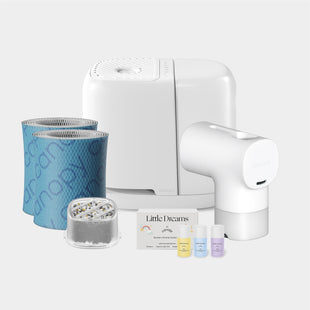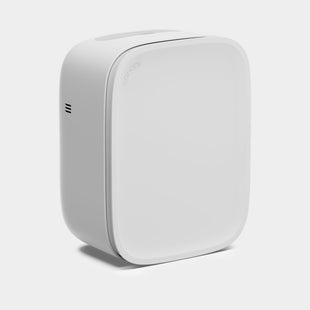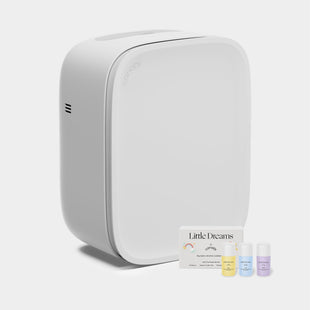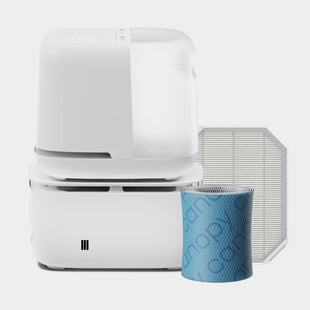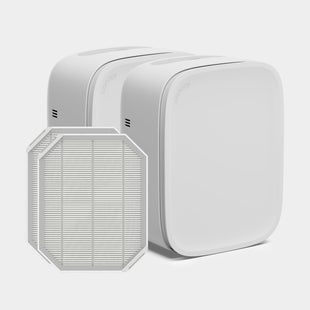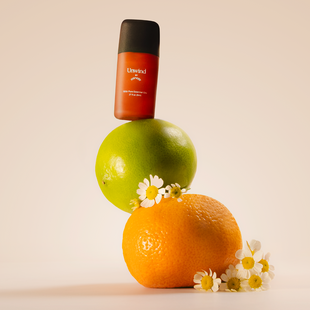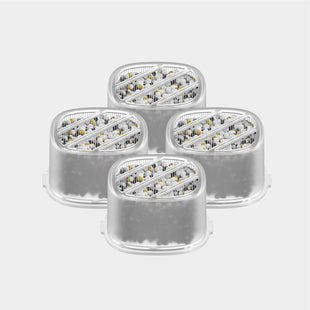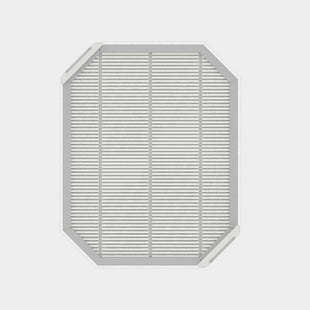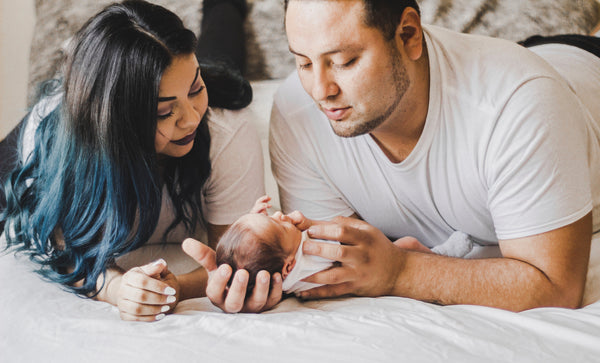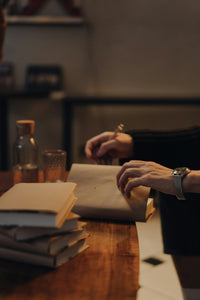Creating a safe, comfortable sleep environment for your baby can help to ensure everyone gets more rest. White noise can be a useful tool for providing a soothing sleep atmosphere for little ones. Many adults already use it to promote relaxation themselves, so you might be wondering whether babies can benefit. If you have a baby or are expecting, here’s what you should know about newborn white noise.
Why Do Babies Like White Noise?
Many new and expecting parents are surprised to discover that the womb is actually a fairly noisy place. Although it can muffle many of the sounds of the exterior world, there are still plenty of noises developing babies hear constantly. Ambient sounds, such as their mother’s beating heart and air moving through the lungs, have been the soundtrack lulling them to sleep for many months.
It’s no surprise that when babies are expected to sleep in the outside world, the lack of ambient sound can be jarring to them. Much like swaddling, white noise can help them feel comfortable and secure, just like they did when they were in the womb. At the same time, white noise can also help to mask other, louder sounds, such as a barking dog or doorbell.
How Loud Should a Baby’s White Noise Be?
As with any aspect of their little one’s sleep environment, parents understandably want to know: Is white noise bad for babies? According to the American Academy of Pediatrics (AAP), sound machines are safe for use in a baby’s sleep environment as long as they stay under 50 decibels. This is about the equivalent of a quiet dishwasher or a soft shower. Keep in mind that white noise doesn’t have to be loud to be effective; in fact, it should be just quiet enough to lull your baby to sleep.
When to Stop Using White Noise for Babies

There is some debate about the best time to stop using white noise. Some parents prefer to turn off the machine each night as soon as the baby has fallen asleep, while others feel that the absence of sound could keep babies from dozing back off if they wake in the middle of the night.
As far as stopping the machine completely, there’s no definitive answer here, either. If a baby becomes dependent on a sound machine, they’ll likely need the noise to fall asleep no matter where they are, which can become a challenge when they’re outside the home, like at daycare or during travel. However, portable white noise machines can be convenient for parents on the go.
In most cases, you’ll want to discontinue use of the sound machine when you’re ready to start transitioning your baby into independent sleep habits. But your baby may not be ready to fall asleep independently until they’re several months old. Keep in mind that there are also many other habits babies may associate with slumber, including feeding directly before sleep and using a pacifier.
Similarly, there are steps parents can take to form a healthy bedtime routine that infants will begin to associate with bedtime, including brushing their teeth, taking a bath, and reading a book. Implementing these habits can help little ones understand the repetitive patterns that help them prepare for bedtime. If you’re unsure when the best time is to stop using white noise, ask your pediatrician for an individualized recommendation.
In addition to providing soothing white noise, making sure your little one has healthy, breathable air is essential for a comfortable nursery. For congestion-fighting moisture, turn to Canopy’s revolutionary humidifier with a mold-inhibiting* design that helps prevent mold inside the device. The device’s gentle operating noises can help lull your baby to sleep, while the fan pushes clean, properly humidified air into the nursery.
*Mold inhibition limited to device interior. Does not treat air or environment. 3rd party lab-tested with Aspergillus niger (ATCC 6275, 16404).









